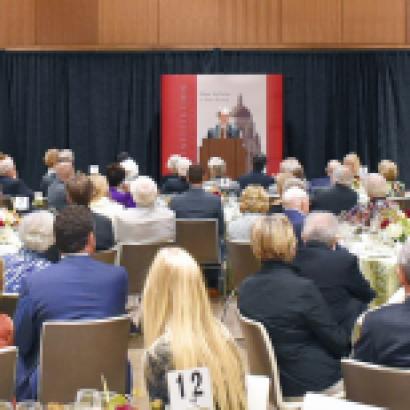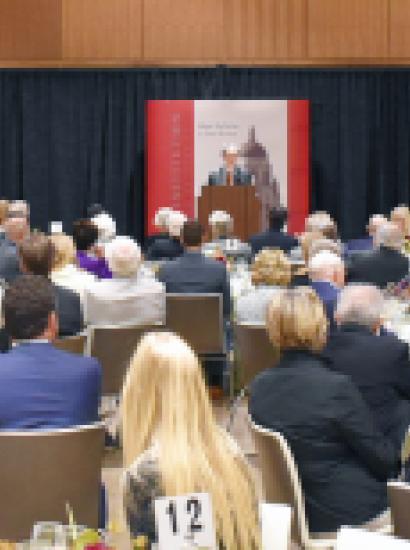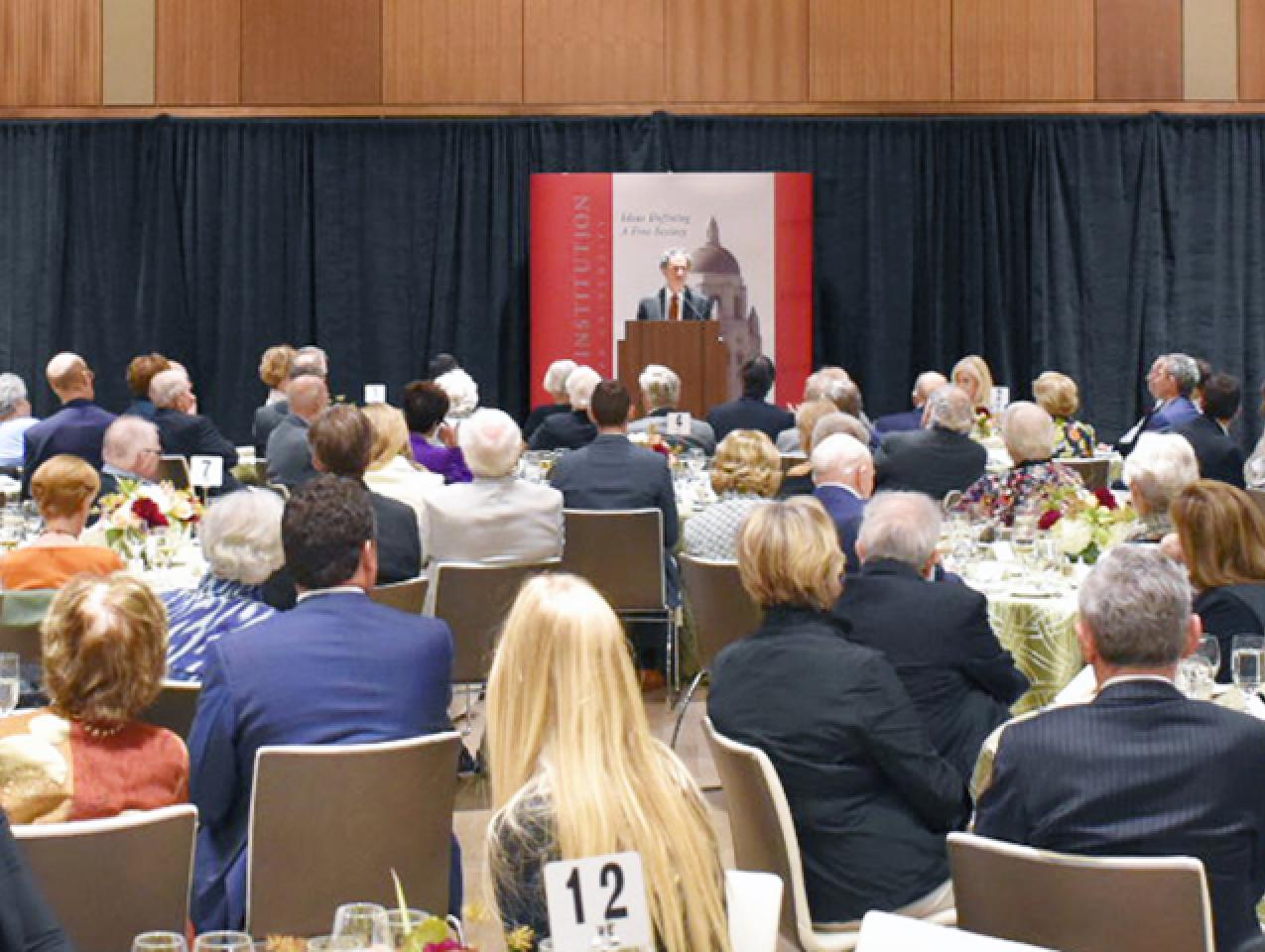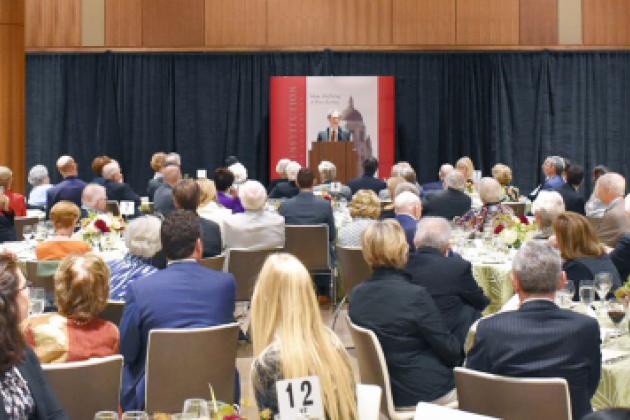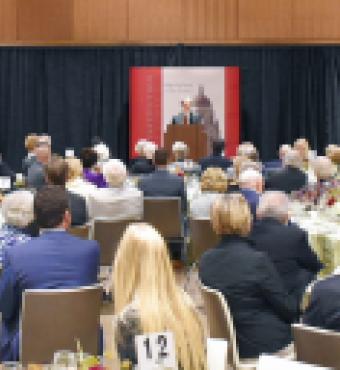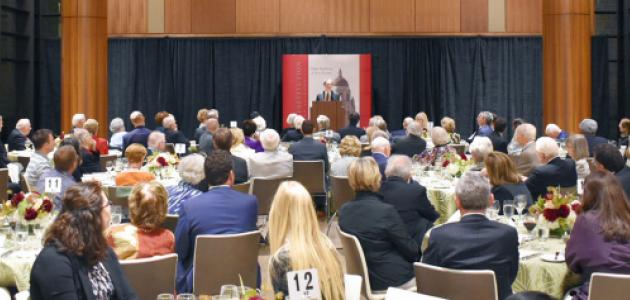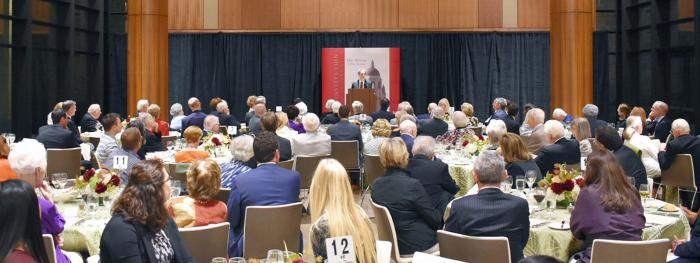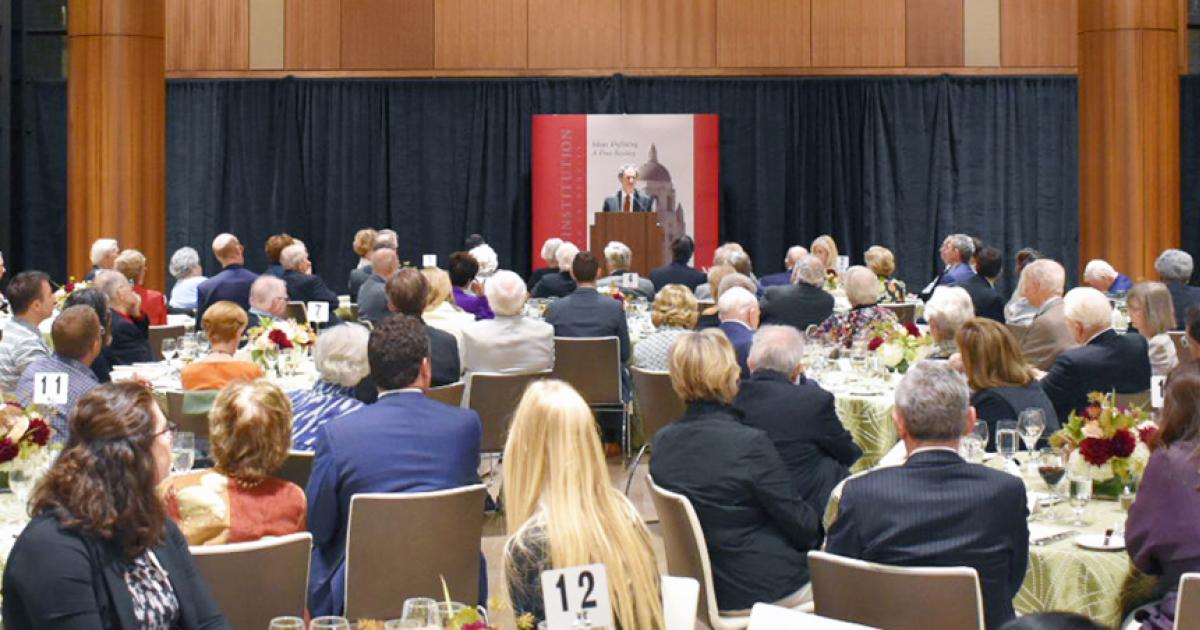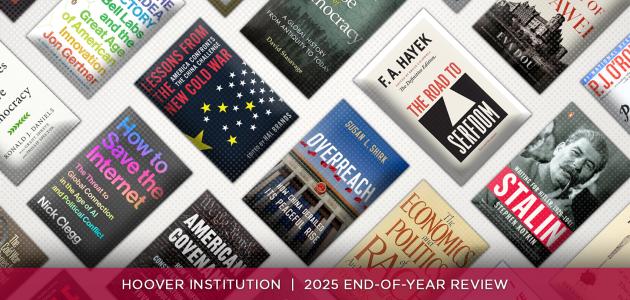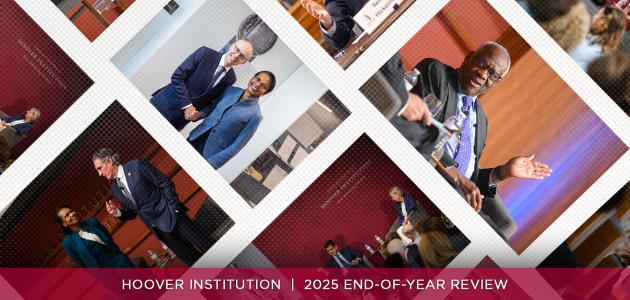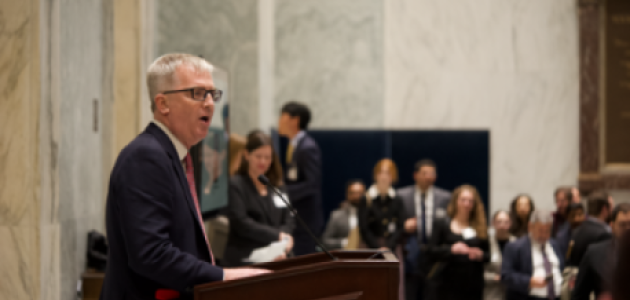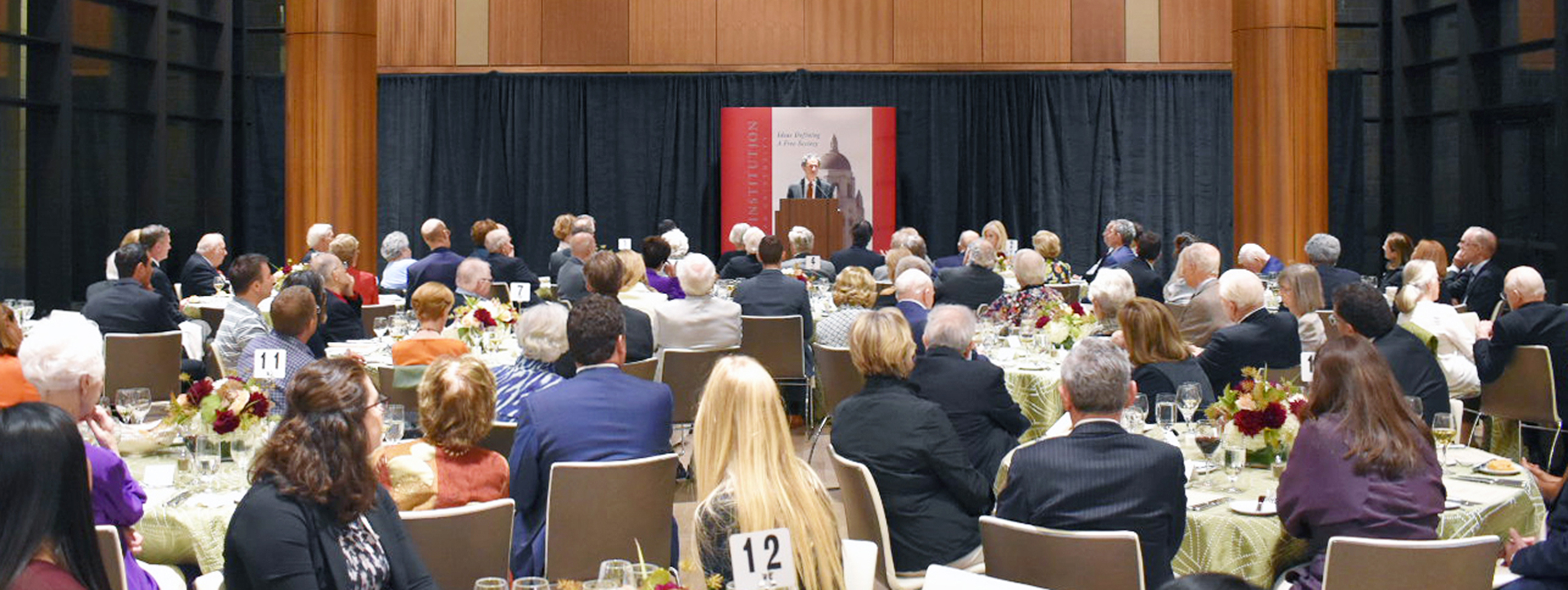
This year the Hoover Institution proudly announced that Tad and Dianne Taube Senior Fellow Peter Berkowitz had been awarded a 2017 Bradley Prize by the Lynde and Harry Bradley Foundation.
The Bradley Prize honors scholars who have made significant contributions in support of constitutional government, free enterprise, civil society, and liberal education: the principles that underlie the Lynde and Harry Bradley Foundation’s mission.
In September the Hoover Institution brought supporters, fellows, and leadership together with Berkowitz to celebrate the distinction in its new David and Joan Traitel Building. Thomas W. Gilligan, the Tad and Dianne Taube Director at Hoover, welcomed friends and supporters to this first event of its kind in the building, held in its glass-walled pavilion that looks over the Fairweather Courtyard toward Hoover Tower. Gilligan also congratulated Berkowitz for joining the many other fellows that have been recognized with the prestigious award, including Victor Davis Hanson, Thomas Sowell, Richard Epstein, John Taylor, and Ayaan Hirsi Ali.
Berkowitz, the keynote speaker of the evening, began with a personal vignette about his arrival at Hoover at the invitation of then director of research at Hoover David Brady and then director John Raisian. He thanked philanthropist Tad Taube, a longtime friend and major supporter of the institution, who has underwritten Berkowitz’s fellowship since his first days at Hoover. In concert with the prize, Taube generously extended Berkowitz’s fellowship for an additional five years.
“Tad’s passionate about promoting individual liberty and safeguarding limited government,” said Berkowitz. “I’m really delighted to be able to call Tad my friend and proud to serve the Hoover Institution as the Tad and Dianne Taube Senior Fellow.”
Berkowitz also took the opportunity to commend Gilligan on his leadership at Hoover. “It’s great that Tom is devoted to Hoover’s multifaceted and abiding mission,” he said, “to examine rigorously, to explain excessively, and to advance energetically the principles and practices of freedom. That mission has never been more urgent.”
Berkowitz then discussed his work as a scholar and public intellectual, as well as the three most significant focuses of his research: American constitutional government, Israel and the Middle East, and liberal education. “What, you might be wondering, have those three apparently disparate topics got to do with one another?” he asked the crowd, joking that a potential explanation is that they “offend the academic establishment.” He then explained, “My chief preoccupations are all bound up with the task of conserving freedom.”
The United States’ system of constitutional government and the state of Israel are, Berkowitz told the audience, “the most prosperous, most powerful experiment in freedom and democracy the world has ever seen. “Liberal education,” he continued, “sustains freedom and democracy wherever the experiment is run.”
He shared with the audience a number challenges being faced in each of these areas and potential reforms. Within the United States he called for a reaffirmation of classical liberal principles in the face of attacks from both the left and the right. In US-Israel relations, he advocated strengthening mutual cooperation and exchange to support the United States’ international security strategy and maintain Israel’s crucial beacon of democracy in the region.
We must also, according to Berkowitz, pressure universities to honor freedom of speech and promote on-campus organizations that foster diversity of opinion and teach otherwise ignored ideas. He also discussed the importance of external opportunities for students to learn about classical liberal principles, such as the inaugural Hoover Institution Summer Policy Boot Camp, held in the Traitel Building just weeks before the dinner.
Berkowitz admitted that the challenges confronting the United States, Israel, our universities, and freedom more broadly far exceed what can be solved by any one of these incremental reforms. Yet he reaffirmed his commitment to this long endeavor. Now, bolstered by the major honor of the Bradley Prize and the invaluable friendship and support of the Lynde and Bradley Foundation, he and other fellows can pursue their vital work for freedom with greater vigor and influence than ever before.







